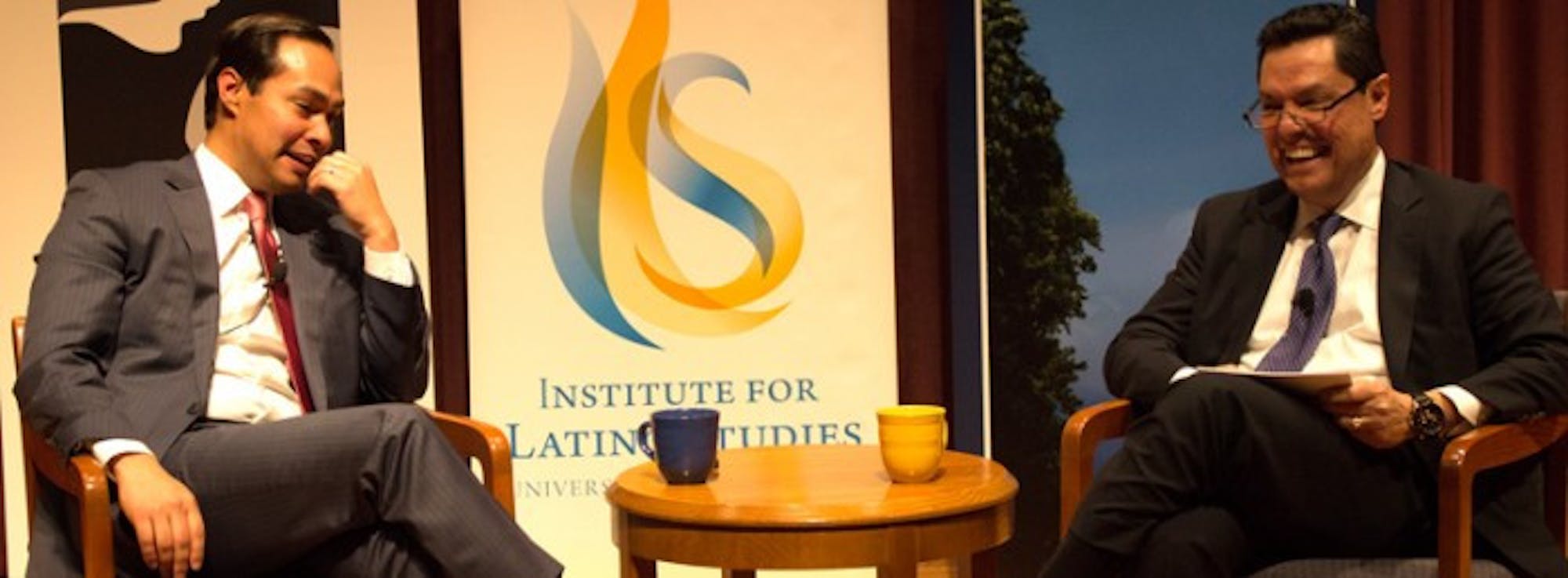San Antonio mayor Julian Castro spoke about his career in a lecture titled “American Politics in the 21st Century: Latino Civic Engagement” Monday night in the Jordan Hall of Science.
The lecture, which was jointly organized by the Multicultural Student Programs and Services, the Institute for Latino Studies and the Rooney Center for the Study of American Democracy focused on Castro’s Latino influence in American politics.
“What we wanted to do was find a dynamic speaker who could talk about things that our Institutes are really concerned about,” event coordinator Arnel Bulaoro said.
“In terms of trying to lead, my approach was to engage the community in forging the vision for the future of the city and then executing on that with all of the institutions [of San Antonio] working together,” Castro said. “I was elected in 2009 and I launched something called SA 2020 in [September 2010] asking a question to the community, ‘Where do we want to be on Friday, September 25th, [2020]?’”
Castro said he attributed political success to having a real connection with the place they are governing or representing. For Castro, that place is San Antonio, where he was born and raised.
“If you want to actually go into politics you have to be from somewhere,” Castro said. “The smartest thing to do is to be where you are from, where you grew up, and have a network of folks who can identify with you, know you and know your family.”
Though Castro said he sees many colored politicians on the state level, a future of more colored national politicians is possible only if those politicians can transcend being defined solely by their race.
“As Latinos grow in numbers … you are going to see successful Latino/Latina candidates more and more at bigger and bigger levels,” Castro said. “However, if you are talking about state-wide candidates in big states or diverse states or nationally, it will help if you’re in any position to win that people cannot overly identify you as just Latino.”
Castro said he wanted to leave a legacy of increased opportunities for the citizens in his district.
“I want more people to have the opportunities that I had in life,” said Castro. “If we were to look at a list of people that have graduated from college, I want that list to be substantially longer than when I started, partly because the work that I done.”
Stanford University professor Luis Fraga said he was immensely proud to be the mentor of such a great politician.
“For a political science professor to see one of his students become a real leader and have real substance on what it is they want to accomplish as a political leader is a dream come true,” Fraga said. “I am immensely proud.”













